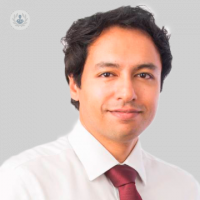Early detection: How heart check-ups can help prevent heart disease
Written in association with:Heart health is a paramount aspect for overall wellbeing, helping in the early detection and prevention of heart disease. Dr Arjun Ghosh, renowned consultant cardiologist, provides an expert insight into the importance of heart check-ups as preventive measures for maintaining heart health.

What is a heart check-up?
A heart check-up, also known as a cardiovascular screening, is a medical evaluation of heart health. It typically involves a series of tests and assessments aimed at identifying your risk factors for heart disease, assessing the current condition of your heart, and determining your overall cardiovascular health. The primary goal is to detect any early signs of heart disease before they develop into more serious health issues.
Why are preventive measures like heart check-ups important for heart health?
Heart disease often develops silently without noticeable symptoms. Routine heart check-ups can identify risk factors such as high blood pressure, high cholesterol, obesity, and lifestyle habits that contribute to heart disease.
Early detection then enables your cardiologist to recommend timely interventions, whether lifestyle modifications or medical treatments, that help prevent the progression of heart disease and associated complications.
What tests are included in a heart check-up?
A heart check-up includes various tests and assessments. While the specific tests recommended can vary depending on individual risk factors, common tests often include:
- Blood pressure measurement: This test measures blood pressure, which is the force of blood against the walls of arteries. High blood pressure can damage arteries and increase the burden on the heart, raising the risk of heart disease.
- Cholesterol profile: This test measures the levels of LDL (low-density lipoprotein), HDL (high-density lipoprotein), and total cholesterol present in the blood. Elevated LDL cholesterol can lead to a build-up of plaque in arteries, increasing the risk of heart disease.
- Electrocardiogram (ECG): This test records the electrical activity of the heart and can reveal irregular heartbeats, structural issues, and signs of previous heart attacks.
- Stress test: This test evaluates how the heart performs under physical stress, helping identify issues that may not be apparent at rest.
- Body mass index (BMI) measurement: This test calculates your BMI, which is the ratio between weight and height. Obesity is a significant contributor to the risk of heart disease.
These tests, when combined, offer a comprehensive view of your heart health and risk factors for heart disease.
What follow-up measures may be recommended after a heart check-up?
Based on the results of your heart check-up, your cardiologist may recommend various follow-up measures, including:
- Lifestyle modifications: A balanced diet, regular physical activity, quitting smoking, and stress management.
- Medications: Medications to help manage high blood pressure, high cholesterol, or other specific conditions that raise the risk of heart disease.
- Regular monitoring: Scheduling follow-up appointments to track heart health over time and adjust interventions as needed.
When should I go for my first heart check-up?
The timing can depend on various factors, including age, family history, and overall health. As a general guideline, adults should consider scheduling their first heart check-up at the age of 30. This early evaluation can help establish a baseline for heart health and allow for monitoring over the years.
People with specific risk factors, on the other hand, such as a family history of heart disease, obesity, diabetes, or high blood pressure, should individually consult their cardiologist about when to start regular check-ups. In some cases, earlier screening might be necessary.
Furthermore, as you age, the frequency of heart check-ups may increase. Adults aged 40 and older are encouraged to have annual check-ups to monitor heart health more closely.
If you would like to book an appointment with Dr Arjun Ghosh, head on over to his Top Doctors profile today.


